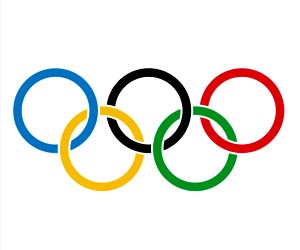The Olympic Games are the most coveted sporting event of the world. After every four years, the Games of the Olympiad and the Winter Olympic Games are organized at a mammoth level. The modern international multi-sport event began in 1896 with French educator Baron Pierre de Coubertin finally reviving the ancient Olympics. The supreme authority governing and organizing the Olympic Games is the International Olympic Committee (IOC). The IOC’s principal role is to lead the promotion of Olympism, in accordance with the Olympic Charter.
The International Olympic Committee was established in 1894, with Demetrius Vikelas as its first President, to organize the Olympic Games. In a congress in Paris, held in 1894 it was decided that the first IOC Olympic Games will take place in Athens in 1896. The International Olympic Committee organizes the Olympic Games in collaboration with several organizations and individuals. With the International Olympic Committee at the helm of affairs, closely working with it are the National Olympic Committees (NOCs), the International Federations (IFs) of different sports, the International Olympic Academy (IOA) and the National Olympic Academies (NOAs) apart from various individuals.
As the Olympics are allotted to a host city every four years, the organization of the Olympic Games is entrusted by the International Olympic Committee (IOC) to the National Olympic Committee (NOC) of the country of the host city as well as to the host city. The National Olympic Committee in turn constitutes an Organizing Committee for the Olympic Games (OCOG). For instance in the case of the 2008 Beijing Olympic Games, the Beijing Organizing Committee for the Games of the XXIX Olympiad (BOCOG) was established on December 13, 2001, five months after Beijing won the right to host the 2008 Olympic Games.
The Organizing Committee for the Olympic Games (OCOG), since the time it is constituted, communicates directly with the International Olympic Committee, whose guidelines and instructions it follows to organize the Olympic Games. The Organizing Committee for the Olympic Games is a holistic body and its executive body includes the International Olympic Committee members in the country, the President and Secretary General of the NOC and at least one member designated and represented by the host city. The Organizing committee, usually for the better organizing and functioning of the games includes representatives of the public authorities and other leading figures from diverse fields. It is the Organizing Committee that chooses and installs necessary infrastructure for organizing the Games such as stadiums, Olympic Villages, training halls and equipments for competing at the Games. It is also the OCOG that arranges for medical services, lodging facilities, transportation facilities for the athletes and officials. The OCOG is responsible for holding cultural events at the opening and closing of the Olympic Games as well as for writing the final report on the celebration of the Games in two languages. The National Olympic Committees send there respective athletes, whose entries have been accepted by the International Olympic committee to the Olympic Games. The world athletes compete with each other under the technical direction of the International Sports Federations concerned. It is the International Olympic Committee that has the final authority on any question concerning the Olympic Games.
The Summer Olympics and the Winter Olympic Games, held every four years are organized by the International Olympic committee, in collaboration with various other international sports bodies.
International Olympic Committee
 | |